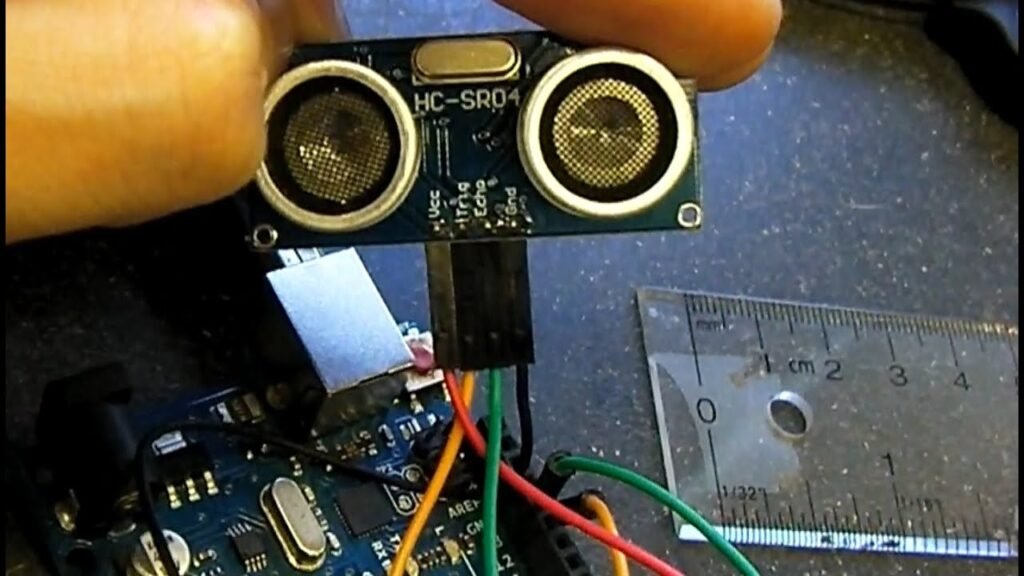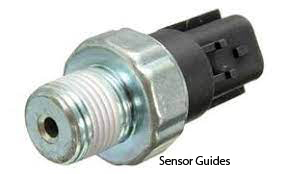why is my ultrasonic sensors stop working?

What Are Ultrasonic Sensors in Vehicles?
Ultrasonic sensors are commonly used in vehicles to assist with parking and collision avoidance. These sensors emit sound waves that bounce off objects in the vehicle’s surroundings, detecting obstacles and sending feedback to the vehicle’s control system. The system then alerts the driver with visual or audio signals when the vehicle is approaching an object too closely.
These sensors are typically located in the bumpers of a car, often at the front and rear. They play a crucial role in enhancing safety during parking or when maneuvering in tight spaces. However, like all sensors, ultrasonic sensors can malfunction due to a variety of reasons, potentially affecting the safety and functionality of your vehicle.
What Causes Ultrasonic Sensors to Stop Working?
There are several reasons why ultrasonic sensors in a vehicle may stop functioning properly. One of the most common causes is dirt or debris accumulation on the sensor surface. Since ultrasonic sensors are located on the vehicle’s bumpers, they are exposed to the elements, which makes them prone to becoming dirty. If there’s dirt, mud, or snow on the sensors, it can block the sound waves, causing inaccurate readings or no response at all.
Another possible reason for sensor failure is physical damage. Ultrasonic sensors are vulnerable to impacts, especially when parking too close to objects or driving through rough terrain. If the sensor is cracked, scratched, or broken, it may no longer function correctly. Additionally, wiring issues such as loose or corroded connections can interfere with the sensor’s communication with the vehicle’s control system. These electrical faults can cause intermittent or complete sensor failure.
How Do I Know If My Ultrasonic Sensor is Malfunctioning?
There are several signs that your ultrasonic sensor may not be working properly. One of the most noticeable indicators is a malfunction in the parking assist feature. If you no longer hear the usual beeping sound or see the visual display showing obstacles when you park, the sensor could be faulty. In some cases, the system might give a continuous warning sound, indicating a problem with the sensors.
Another way to check for sensor issues is by inspecting the sensor areas for visible damage or obstructions. Dirt, debris, or even paint buildup on the sensor can prevent it from functioning properly. If the sensor appears clean but still isn’t working, it might be time to check for any wiring or electrical issues. A diagnostic tool can also help pinpoint the problem by checking for error codes.
Can I Fix an Ultrasonic Sensor Myself?
In some cases, you may be able to fix the ultrasonic sensor yourself, especially if the problem is caused by something simple, such as dirt or debris. If your sensor is dirty, you can clean it with a soft cloth and a mild cleaning solution. Avoid using harsh chemicals or abrasive materials, as they can damage the sensor. However, if the sensor is cracked, broken, or damaged in any way, you will need to replace it.
Fixing electrical or wiring issues can be more complex and may require professional help. If you notice any wiring problems, such as loose or corroded connections, it is best to consult a professional mechanic or take your vehicle to a service center. Attempting to repair electrical components without proper knowledge can lead to further damage or safety risks.
Are There Any Other Reasons for Ultrasonic Sensor Failure?
Aside from dirt, damage, and wiring issues, there are a few other reasons why ultrasonic sensors might stop working. One of these is a malfunction in the vehicle’s control module. The control module processes the data from the sensors and translates it into alerts for the driver. If there is a software issue or a malfunction within the control module, it can affect the sensor’s performance.
Another potential issue could be interference from other electronic systems in the vehicle. Many modern cars are equipped with various electronic systems that communicate with each other. If one of these systems is malfunctioning, it can sometimes interfere with the ultrasonic sensor’s signals. In this case, the issue may not be with the sensor itself but with the vehicle’s electrical or software systems.
How Can I Prevent Ultrasonic Sensors from Malfunctioning?
Preventing ultrasonic sensor failure mainly involves regular maintenance and careful driving. Here are a few steps you can take to ensure your sensors stay in good working condition:
- Regular Cleaning: Clean the sensors regularly to remove dirt, debris, or other obstructions. Be sure to check the sensor areas before driving, especially in adverse weather conditions like snow or heavy rain.
- Careful Parking: Be mindful of your parking habits. Avoid hitting or bumping into objects that could damage the sensors. Also, try to avoid parking in areas with a lot of debris, which can easily collect on the sensors.
- Check for Damage: Inspect the sensors periodically for any signs of physical damage. If you notice cracks or scratches, it’s a good idea to have them replaced before they stop working entirely.
- Update Software: If your vehicle’s ultrasonic sensors are controlled by software, be sure to keep the system up to date. Check with your vehicle manufacturer for any available software updates.
- Professional Inspections: If you experience persistent issues with your sensors, it’s a good idea to have them professionally inspected. A technician can run diagnostics and fix any problems with the wiring, software, or electrical components.
What Should I Do if My Ultrasonic Sensor Stops Working?
If your ultrasonic sensor stops working, the first step is to check for simple issues, such as dirt or obstructions on the sensor. If cleaning the sensor doesn’t resolve the issue, visually inspect the sensor for any signs of physical damage. If the sensor is damaged or cracked, you’ll need to replace it.
If the sensor appears undamaged and clean, but the problem persists, it may be time to check for wiring issues or a problem with the vehicle’s control module. You may want to use an OBD-II scanner or take your vehicle to a service center to diagnose and fix the issue.
Conclusion
Ultrasonic sensors are crucial for vehicle safety, particularly in parking and collision avoidance. When these sensors stop working, it can pose a significant risk, especially when maneuvering in tight spaces. Various factors, such as dirt, physical damage, wiring issues, or software problems, can cause ultrasonic sensor malfunctions. Regular maintenance, careful parking, and timely inspections can help prevent issues and extend the life of these important components.
If you notice that your ultrasonic sensors aren’t working, start by checking for common problems like dirt or damage. If the problem persists, it’s best to consult a professional technician to ensure the issue is properly diagnosed and resolved.
FAQs
- Can ultrasonic sensors work in extreme weather conditions?
- Yes, ultrasonic sensors are designed to function in various weather conditions. However, snow, heavy rain, or mud can obstruct the sensors, affecting their performance. It’s important to clean them regularly in such conditions.
- How much does it cost to replace a faulty ultrasonic sensor?
- The cost of replacing an ultrasonic sensor varies depending on the vehicle make and model. Generally, it can cost between $100 and $300 per sensor, excluding labor.
- Is it safe to drive with a malfunctioning ultrasonic sensor?
- While it is possible to drive with a malfunctioning ultrasonic sensor, it may affect your ability to park safely and avoid obstacles. It’s recommended to fix the issue as soon as possible.
- Can I use an OBD-II scanner to diagnose ultrasonic sensor issues?
- Yes, an OBD-II scanner can help detect error codes related to the ultrasonic sensor system. However, more specific diagnostics may require a professional mechanic or dealership.
- Do ultrasonic sensors require regular maintenance?
- Ultrasonic sensors don’t require much maintenance, but cleaning them regularly to remove dirt, debris, or snow is important. Additionally, inspecting them for physical damage will help ensure they work properly.




